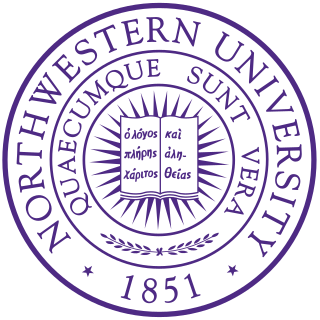Related Research Articles

In common law legal systems, black-letter law refers to well-established legal rules that are no longer subject to reasonable dispute. Black-letter law can be contrasted with legal theory or unsettled legal issues.

Constitutional law is a body of law which defines the role, powers, and structure of different entities within a state, namely, the executive, the parliament or legislature, and the judiciary; as well as the basic rights of citizens and, in federal countries such as the United States and Canada, the relationship between the central government and state, provincial, or territorial governments.

Black's Law Dictionary is the most frequently used legal dictionary in the United States. Henry Campbell Black (1860–1927) was the author of the first two editions of the dictionary.

The judiciary is the system of courts that adjudicates legal disputes/disagreements and interprets, defends, and applies the law in legal cases.
Buchanan v. Warley, 245 U.S. 60 (1917), is a case in which the Supreme Court of the United States addressed civil government-instituted racial segregation in residential areas. The Court held unanimously that a Louisville, Kentucky, city ordinance prohibiting the sale of real property to blacks in white-majority neighborhoods or buildings and vice versa violated the Fourteenth Amendment's protections for freedom of contract. The ruling of the Kentucky Court of Appeals was thus reversed.

A law school in the United States is an educational institution where students obtain a professional education in law after first obtaining an undergraduate degree.

Richard Allen Epstein is an American legal scholar known for his writings on torts, contracts, property rights, law and economics, classical liberalism, and libertarianism. He is the Laurence A. Tisch Professor of Law at New York University and the director of the Classical Liberal Institute. He also serves as the Peter and Kirsten Bedford Senior Fellow at the Hoover Institution and as a senior lecturer and the James Parker Hall Distinguished Service Professor of Law Emeritus at the University of Chicago.

The University of Chicago Law School is the law school of the University of Chicago, a private research university in Chicago, Illinois. It employs more than 180 full-time and part-time faculty and hosts more than 600 students in its Juris Doctor program, while also offering the Master of Laws, Master of Studies in Law and Doctor of Juridical Science degrees in law.

William Francis Murphy was an American politician, lawyer, and jurist from Michigan. He was a Democrat who was named to the Supreme Court of the United States in 1940 after a political career that included serving as United States Attorney General, 35th Governor of Michigan, and Mayor of Detroit. He also served as the last Governor-General of the Philippines and the first High Commissioner to the Philippines.

The Georgetown University Law Center is the law school of Georgetown University, a private research university in Washington, D.C., United States. It was established in 1870 and is the largest law school in the United States by enrollment, with over 2,000 students. It frequently receives the most full-time applications of any law school in the United States.

The Bluebook: A Uniform System of Citation is a style guide that prescribes the most widely used legal citation system in the United States. It is taught and used at a majority of U.S. law schools and is also used in a majority of federal courts. Legal publishers also use several "house" citation styles in their works.

A hornbook (horn-book) is a single-sided alphabet tablet, which served from medieval times as a primer for study, and sometimes included vowel combinations, numerals or short verse. The hornbook was in common use in England around 1450, but may have originated more than a century earlier. The term (hornbook) has been applied to different study materials in different fields but owes its origin to children's education, represented by a sheet of vellum or paper displaying the alphabet, religious verse, etc., protected with a translucent covering of horn and attached to a frame provided with a handle.
A casebook is a type of textbook used primarily by students in law schools. Rather than simply laying out the legal doctrine in a particular area of study, a casebook contains excerpts from legal cases in which the law of that area was applied. It is then up to the student to analyze the language of the case in order to determine what rule was applied and how the court applied it. Casebooks sometimes also contain excerpts from law review articles and legal treatises, historical notes, editorial commentary, and other related materials to provide background for the cases.
In law, a secondary authority is an authority purporting to explain the meaning or applicability of the actual verbatim texts of primary authorities.

The Northwestern University Pritzker School of Law is the law school of Northwestern University, a private research university. The law school is located on the university's Chicago campus. Northwestern Law is considered part of the T14, an unofficial designation in the legal community as the best 14 law schools in the United States.

San Antonio Independent School District v. Rodriguez, 411 U.S. 1 (1973), was a case in which the Supreme Court of the United States held that San Antonio Independent School District's financing system, which was based on local property taxes, was not a violation of the Fourteenth Amendment's equal protection clause.
A legal treatise is a scholarly legal publication containing all the law relating to a particular area, such as criminal law or trusts and estates. There is no fixed usage on what books qualify as a "legal treatise", with the term being used broadly to define books written for practicing attorneys and judges, textbooks for law students, and explanatory texts for laypersons. The treatise may generally be loose leaf bound with rings or posts so that updates to laws covered by the treatise and annotated by the editor may be added by the subscriber to the legal treatise.

Bryan Andrew Garner is an American legal scholar and lexicographer. He has written more than two dozen books about English usage and style such as Garner's Modern English Usage for a general audience, and others for legal professionals. Garner also wrote two books with Justice Antonin Scalia: Making Your Case: The Art of Persuading Judges (2008) and Reading Law: The Interpretation of Legal Texts (2012). He is the founder and president of LawProse Inc.

An alphabet book is a type of children's book giving basic instruction in an alphabet. Intended for young children, alphabet books commonly use pictures, simple language and alliteration to aid language learning. Alphabet books are published in several languages, and some distinguish the capitals and lower case letters in a given alphabet.

Alfred C. Aman Jr. is a professor of administrative law, author and the former Dean of Indiana University School of Law – Bloomington and Suffolk University Law School in Boston, Massachusetts, United States. He stepped down as Dean of Suffolk in 2009 to return to Indiana University as the Roscoe C. O'Byrne Professor of Law.
References
- ↑ "Hornbooks and Study Supplements". D'Angelo Law Library. The University of Chicago Library. Retrieved 24 June 2015.
- ↑ Austin, Tammy L. "The Hornbook". www3.nd.edu. University of Notre Dame. Retrieved 24 June 2015.